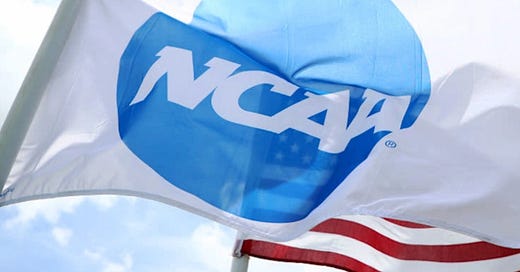The NCAA’s Name, Image, and Likeness (NIL) era has upended college sports. Star athletes can now cash in on their marketability, but amid the opportunity lies a thicket of confusing rules, fragmented marketplaces, and potential risks to player eligibility. Part of the settlement in House v. NCAA, is the potential emergence of Deloitte’s NIL Clearinghouse, a new mechanism meant to bring order and compliance to the chaos—presumably ending the pay-for-play era. Yet, while the Clearinghouse might better ensure deals comply with NCAA regulations, it remains to be seen whether it will tilt the playing field against players?
The NIL Clearinghouse: an unfair dispute resolution tool?
If the Clearinghouse determines (using its 12-step framework) that an NIL deal does not meet NCAA requirements and that an athlete is receiving more than fair market value, the deal will be flagged. Deloitte will not block the deal, but athletes can (i) cancel the deal, (ii) take the decision to arbitration, or (iii) accept the deal (but risk eligibility). If a player opts for arbitration, presumably the process will involve a marketability study involving comparable deals, social media analysis, etc. But will players have all the tools they need to arbitrate successfully?
Let’s look at Major League Baseball as a point of comparison. When a player and a team can’t agree on a salary, the dispute goes to arbitration. There, both the team and the player’s representative come to the table armed with detailed knowledge of (publicly available) comparable player contracts. They know what players of similar performance and tenure are paid, ensuring a degree of fairness in the process.
In the NIL space, however, the rules of the game are still being sorted and murkier. The Deloitte NIL Clearinghouse is designed to review and approve NIL deals for compliance, but it’s not yet clear whether player agents or advisors will be given access to comprehensive NIL market data. Will a star quarterback’s representative know what other top QBs are making? Will a gymnast have insight into comparable endorsement deals? Or will NIL agents only have access to their own client roster data?
Without that transparency, schools, boosters, and brands may wield more information than players and agents, potentially resulting in either lopsided deals, unfair dispute resolution procedures that grossly favor brands/schools, and depressed athlete earnings.
The impact could be far greater, considering that players who accept uncleared deals could risk eligibility. While the Clearinghouse could flag noncompliant deals to give players a head’s up, without full knowledge of all comparable deals, players may not be able to make decisions with full information—overestimating their marketability.
This isn’t like MLB arbitration, where the worst-case scenario is a smaller paycheck. In the NIL world, a bad or noncompliant deal could jeopardize a player’s entire collegiate career.
What to do? A public database of NIL deals
If the NIL Clearinghouse is to be a genuine tool for fairness, it needs to offer more than just compliance checks. Transparency is essential. Deloitte will ultimattely be the gatekeeper of NIL data. It should offer this data publicly, or at least to agents, lawyers, or other representatives who could potentially arbitrate a dispute.
If unwilling, agents should begin pooling information or begin a public database that can be used for the benefit of defending disputed NIL deals. Sites like On3 presumably have a lot of this data already, so it’s just about finding the best way to share it in a way that benefits the athletes and the brands/organizations signing the deals.
Without such measures, the NIL marketplace risks replicating the information asymmetry that has long plagued amateur athletics—this time with real money and eligibility on the line.
Conclusion
The Deloitte NIL Clearinghouse has the potential to bring much-needed structure to the NIL market. But without transparency on comparable deals, it could reinforce the very inequities it aims to correct.
To truly empower college athletes—and protect their eligibility—we need to ensure they have the data to negotiate fair contracts. A public NIL database or structured sharing of deal terms could be a simple yet powerful step toward leveling the playing field.






